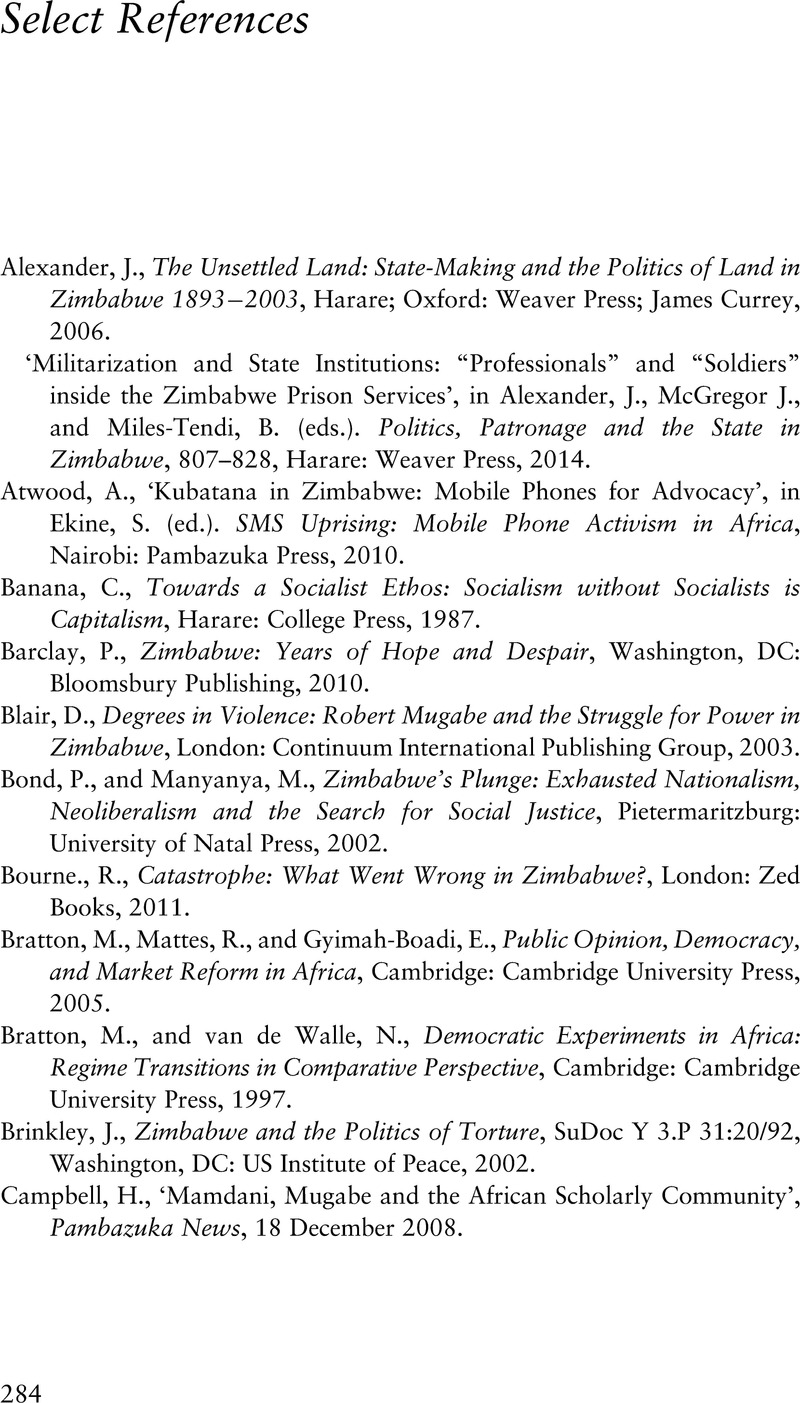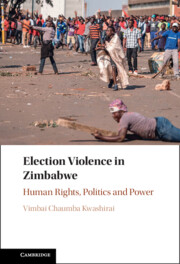Book contents
- Election Violence in Zimbabwe
- Election Violence in Zimbabwe
- Copyright page
- Dedication
- Contents
- Figures
- Tables
- Preface
- Acknowledgements
- Abbreviations
- Introduction
- 1 Violence, a Colonial Curse
- 2 Zanu PF and PF Zapu Violence
- 3 The New Enemy in the 1990 General Elections Was Zum
- 4 Zanu PF on Zanu PF Violence in 1995
- 5 What Presidential Election in 1996?
- 6 The Movement for Democratic Change Was Number One Enemy in 2000
- 7 Presidential Election in 2002
- 8 What General Elections in 2005?
- 9 Disharmony in the 2008 Harmonised Elections
- 10 Violence in the 2013 Elections
- Conclusions
- Recommendations
- Select References
- Index
- References
Select References
Published online by Cambridge University Press: 23 February 2023
- Election Violence in Zimbabwe
- Election Violence in Zimbabwe
- Copyright page
- Dedication
- Contents
- Figures
- Tables
- Preface
- Acknowledgements
- Abbreviations
- Introduction
- 1 Violence, a Colonial Curse
- 2 Zanu PF and PF Zapu Violence
- 3 The New Enemy in the 1990 General Elections Was Zum
- 4 Zanu PF on Zanu PF Violence in 1995
- 5 What Presidential Election in 1996?
- 6 The Movement for Democratic Change Was Number One Enemy in 2000
- 7 Presidential Election in 2002
- 8 What General Elections in 2005?
- 9 Disharmony in the 2008 Harmonised Elections
- 10 Violence in the 2013 Elections
- Conclusions
- Recommendations
- Select References
- Index
- References
Summary

- Type
- Chapter
- Information
- Election Violence in ZimbabweHuman Rights, Politics and Power, pp. 284 - 290Publisher: Cambridge University PressPrint publication year: 2023

